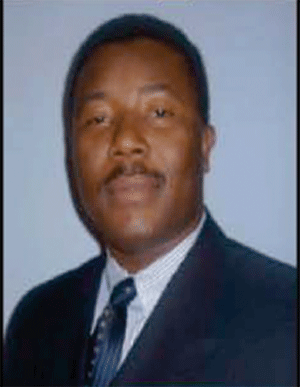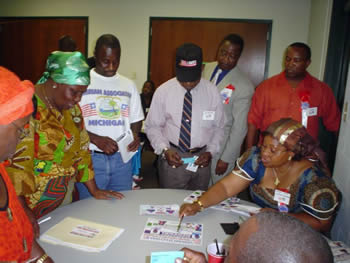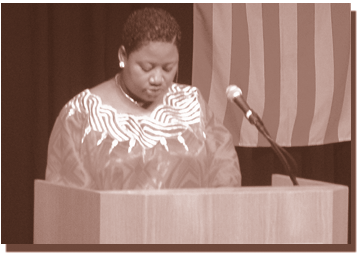
 |
|
Arthur Watson
ULAA President Elect |
But as soon as the ULAA Elections Chairman, Benoni Tarr Grimes announced the election result at the Liberian center in Trenton, New Jersey Saturday night, calm immediately returned to the Union and a sense of hope was once again rekindled when Morris Koffa of Washington, DC graciously accepted defeat in his concession speech and pledged to work with the new administration in moving the Union forward.
There was clapping of hands, tears of joy and hugs among Liberians as well as a great relief that Liberians have agreed to put behind them the bitterness of the elections, heal the wounds and move forward in reawakening this sleeping Liberian giant (ULAA) that has nearly become irrelevant and less appealing to many Liberians not only in the Diaspora but Liberians back home.
On the eve of the 30th General Conference of ULAA, half of the Liberians in an Internet poll conducted by the University of Liberia Alumni Association In Pennsylvania said that they do not take ULAA seriously. The organization, founded on April 21, 1974 mainly by Liberian students then studying in the United States, has been struggling over the years to redefine itself, considering the massive influx of Liberians who have now resettled in the US due to the bloody war in their native country.
 |
|
ULAA ECOM commissioners explaining to voters the process of voting
|
Isaac Zowolo of Washington DC chapter of ULAA narrowly defeated the incumbent Adolphus Jacobs of Pennsylvania by a ten point margin to become the new Vice President of the Eastern Region. James Hunder ran unopposed and won as Vice President of the Southern Region. There was no candidate for the Western region which comprises California and other states.
Wilmot W. Kunney of Pennsylvania defeated his challenger, Cleophus Pearson to retain his position as Secretary General for another two years. He has been very outspoken and often a lone voice in the outgoing administration led by Roberta Rashid of Pittsburgh. Delores Adighibe is the new National Treasurer. She defeated her female challenger, Bernice Momo who also did not show up in time for the Friday night debate. The debate was very crucial to the entire electoral process.
The new administration will face an uphill task. ULAA is bankrupt to say the least. During the debate, it was revealed that the organization had only $168.00 in its coffers. Generating funding has been one of the major weaknesses of ULAA. The Union has not been able to evolve programs that would be appealing to Liberians in the United States, and it desperately needs support from Liberians. The organization’s budget of $1.2 million dollars approved in 2003 was merely a floor show.
On the national and international fronts, the international community in its dealings with Liberia on the peace process has not also taken ULAA seriously. To compound problems for the organization, various county and tribal associations have emerged and are becoming more powerful than the umbrella organization. Liberians in the US seem to be drifting more and more to these county and tribal organizations than to ULAA.
The greatest challenge now pose to ULAA is the formation of the Federation of County Associations in the Americas, an organization very similar to ULAA. Even though organizers of the county federation led by Dr. Mariah Y. Seton of the Maryland County Association have said that their focus is Liberians in Liberia and not Liberians in the United States, the line between ULAA and the county federation is actually too thin. ULAA has a very broad mandate but the internal squabbles and confusion in the organization have rendered the organization very ineffective and have continued to rob it the opportunities to deliver.
 |
| Outgoing President Roberta Rashid |
During the debate, Watson pledged to support the county federation and vowed not to oppose it. But that remains to be seen. Obviously, he could not annoy one of his strongest supporters, Dr. Mariah Seton when he was running to become President. Mariah was even Watson's poll watcher at the counting of ballots. But it is most likely that this marriage will fall off. The ULAA Board Chairman, Anthony V. Kesselly does not seem to favor the formation of the county federation. Kesselly is also a key Watson ally and the man whom many regard as the brain behind Watson's election. But throughout the campaign, he showed "neutrality" at least publicly because he is ULAA Board Chairman.
Watson will have to prove that he is a charismatic leader otherwise the honeymoon will soon be over. If he remains to the right, by pleasing Kesselly and Kunney, he will antagonize the left, which is made up of the outgoing president, Roberta Rashid, Morris Koffa, Adolphus Jacobs, Patrick Tuon and others. If Watson shifts to the left, he will loose his support base and may not be re-elected. For him to move to the middle, by attempting to please all sides will be a political blunder that he will pay for very dearly. Watson, Kesselly and Kunney are known as the "big trio" in ULAA circles. Kesselly commands enormous influence on the ULAA board which can make or break any ULAA administration because of the way the ULAA constitution is written.
At the 30th ULAA conference which ended Saturday (August 21) many delegates privately said that they were very frustrated over the lack of progress in ULAA, and many are concerned over the confusion that have been tearing apart the organization. Although many were hopeful that Watson would do something, their hope is only a cautious optimism. Many delegates said they were hopeful when Mohammed Kromah was elected about two years ago. But the squabbles continued in ULAA after the 2002 elections. Subsequently, Kromah packed his bag and left to take up job in the Interim government in Liberia.
Watson and his team have promised that they would not leave the Union to take up job in the Liberian government during their administration. But people in ULAA circles don't actually believe in that promise not that they do not trust him. Watson is actually one of few people that people respect in ULAA circle. But many had used ULAA as a springboard for government jobs in Liberia and this is the main reason why trust among the people has eroded. So Watson will be carefully watched to see whether he will keep his promise.
Watson has also promised to work toward one national Independence Day celebrations (July 26). He made this pledged when he was asked by the moderator at the Friday night debate. He has also promised to establish a ULAA satellite office in Monrovia. But he did not talk about an office space for ULAA in the US. He promised to aggressively generate funding for ULAA and to make ULAA more active in the search for peace in Liberia. Watson's campaign was actually effective in marketing his ideas. What now remain to be seen are deeds and not words.

